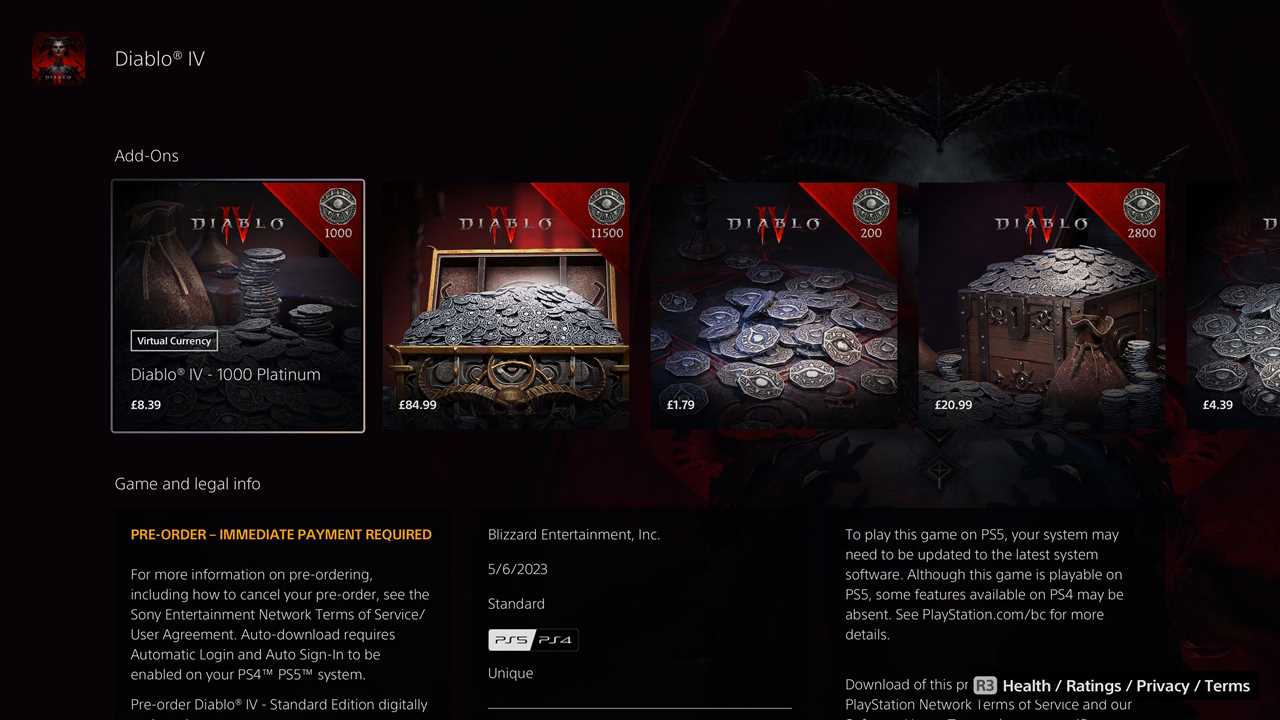BLIZZARD has just released the latest game in its long running dungeon-crawling RPG series, Diablo 4.
The game, which launched for deluxe edition players on Xbox, PS5, and PC today, has gotten glowing reviews, but some players aren’t happy about the game’s monetisation.

Diablo 4 players can expect to spend up to £85 on premium currency in the game
Diablo 4 is a live service game, which means that content is added over time, and is intended to be played by players for years to come.
The previous game in the series, Diablo 3, was released in 2012, and still gets regular new content to this day.
Unlike Diablo 3, however, Blizzard has monetised Diablo 4 with microtransactions, and many players are worried it goes too far.
Diablo 4 isn’t the first game in the series to feature microtransactions, as free-to-play mobile game Diablo Immortal features them too.
Diablo Immortal was delayed by a month after players criticised that game’s microtransactions, which could be used to level up characters in the game.
Some players estimated that in order to fully upgrade a character in Diablo Immortal, you’d need to spend over £400,000.
Diablo 4’s microtransactions aren’t so harsh, and can only be used to purchase cosmetic upgrades, rather than character upgrades like in Immortal.
The main form of microtransaction in Diablo 4 is for a premium currency called Platinum, which comes in various amounts.
200 platinum costs £1.79, while players can also pay £85 for 11500 platinum, which can then be spent on outfits and cosmetic mounts.
A nice cosmetic outfit in the game costs 1300 platinum, meaning some players have to spend at least £12 on platinum to buy an outfit.
Another purchase that has players annoyed is custom mounts such as horses, which can cost up to £10 depending on the bundle.
Horses and other mounts can be earned in-game, but are often quite plain, while premium mounts are much more interesting.
While Blizzard intends to use the microtransactions to fund the game’s ongoing content, many have complained about paying extra for cosmetic additions in a game that already costs £70 digitally.
Some have also speculated that Blizzard carved out ‘good-looking’ armour to sell to players as microtransactions, rather than including it in the game.
Microtransactions have come under massive scrutiny across the globe in recent years, with some equating them to gambling and accusing publishers of preying on children and those with poor impulse control.
One game infamous for its use of microtransactions and loot boxes is FIFA 23, which recently came under fire over perceived hypocrisy when it removed Ivan Toney from the game after a gambling scandal.
The prevalence of microtransactions is usually traced back to The Elder Scrolls IV: Oblivion, which included cosmetic purchases such as horse armour, one of the most famous DLC scandals in games history.
Written by Oliver Brandt on behalf of GLHF.






